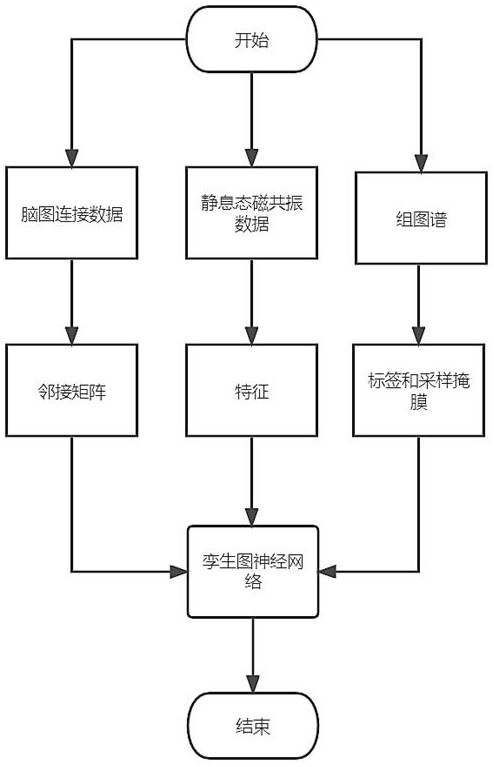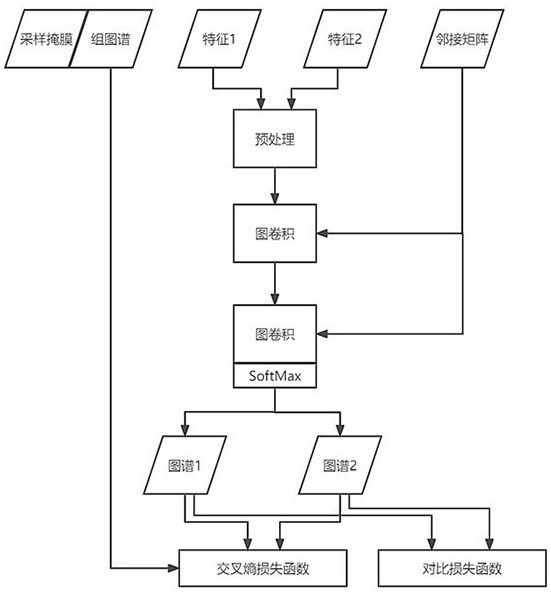Brain atlas individualization method and system based on magnetic resonance and twin graph neural network
A neural network and brain map technology, applied in medical science, diagnosis, diagnostic recording/measurement, etc., can solve the problems of slow convergence of iterative schemes and long reconstruction time, and achieve the goals of reducing reconstruction time, improving variance, and ensuring consistency Effect
- Summary
- Abstract
- Description
- Claims
- Application Information
AI Technical Summary
Problems solved by technology
Method used
Image
Examples
Embodiment Construction
[0038] The specific embodiments of the present invention will be further described in detail below with reference to the accompanying drawings.
[0039] The invention provides a brain atlas individualization method and system based on magnetic resonance and twin graph neural network, which can express the differences between individuals as much as possible under the condition of ensuring the consistency of the functional areas of the subjects. Construct functional connectivity and adjacency matrices based on subject rs-fMRI data and T1-weighted MRI data as model input; use group atlas to design sampling masks to obtain regions with relatively high consistency as sampling regions, and introduce these two into into the loss function; design a reconstruction model based on the twin graph neural network for training; finally, since the brain map has no real value as an evaluation, select some indicators that can evaluate the rationality of the individual brain map, such as evaluati...
PUM
 Login to View More
Login to View More Abstract
Description
Claims
Application Information
 Login to View More
Login to View More - R&D
- Intellectual Property
- Life Sciences
- Materials
- Tech Scout
- Unparalleled Data Quality
- Higher Quality Content
- 60% Fewer Hallucinations
Browse by: Latest US Patents, China's latest patents, Technical Efficacy Thesaurus, Application Domain, Technology Topic, Popular Technical Reports.
© 2025 PatSnap. All rights reserved.Legal|Privacy policy|Modern Slavery Act Transparency Statement|Sitemap|About US| Contact US: help@patsnap.com



